Health of the Nation: New report reveals snapshot of Aussies’ health, lifestyle
Australians are at risk of dying young or living a life hamstrung by preventable chronic diseases. Here are the key steps to living a healthy life.
Health of the Nation
Don't miss out on the headlines from Health of the Nation. Followed categories will be added to My News.
Australians are at risk of dying young or living a life hamstrung by preventable chronic diseases but admit they are too lazy to do anything about it, a snapshot of the nation’s health shows.
The study of more than 3000 people found six in 10 of us are overweight or obese, we barely exercise, we sit in front of screens for more than eight hours a day and many of our calories come from junk food.
Medical research shows this sedentary lifestyle is not only expanding our waistlines, it’s shrinking our brains and driving 12.6 million of us into chronic illnesses, including cancer and heart disease, diabetes and dementia.
REALITY CHECK
The News Corp study into the health of the nation found South Australia is the fattest state (38 per cent identify as being obese), followed by Tasmania and Queensland (33 per cent).
Overweight Australians want an easy fix, with more than 62 per cent considering weight-loss drugs, such as Ozempic, and one in three reaching for vitamin pills.
Forty per cent of us are junk food addicts, consuming soft drinks, hot chips, chocolates, biscuits and lollies more than once a week.
We’re also couch potatoes, with the survey finding half of us are in the high-risk category of sitting for more than eight hours a day and spending just 34 minutes exercising.
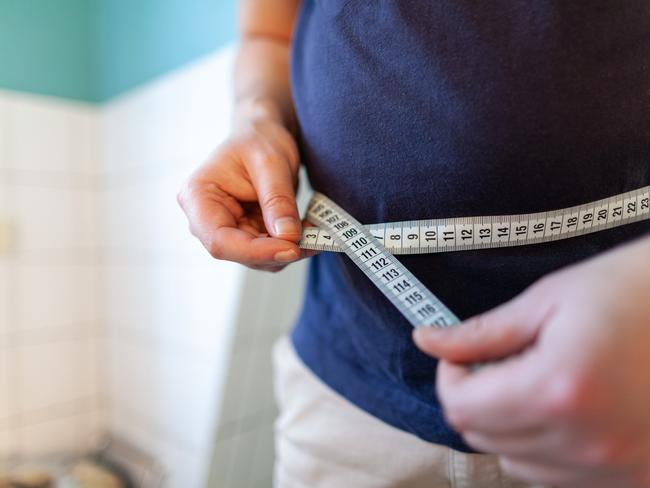
One in four parents never throw or a kick a ball with their children. Only half take their children outdoors to play one to three hours a week.
And our greatest health fear is dementia.
Lifestyle change expert and former AMA president (NSW) Dr Kean-Seng Lim said Australians were dicing with their life expectancy if they ignored health indicators.
“When I started working in my practice almost 30 years ago most scales in our practice went up to 130kg, ” Dr Lim said.
“ Within a few years we needed to get 160kg scales; now every room has 200kg scales and some have 250kg scales,” he said.
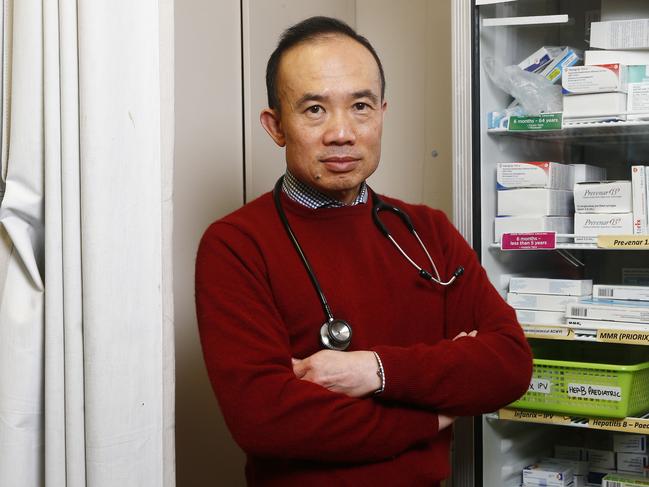
Australians blame lack of time (44 per cent), motivation (59 per cent) and difficulty maintaining a routine (58 per cent) as the main barriers to becoming healthier.
Our biggest motivators are stress reduction, boosting self-esteem and prevention of future health issues.
Australia’s chief medical officer Professor Paul Kelly said eating more vegetables and getting active were key elements of his lifestyle prescription.
“If you want to stay physically and mentally healthy during 2024 and beyond, here is the CMO’s prescription: don’t smoke or vape, drink less alcohol, eat less and mainly vegetables of different colours, get active and find a new hobby which you can do with others,” he said.
When it comes to making some healthy changes to your diet there are simple steps you can take. Try adding fruit and vegetables across all your meals and snacks. Think fruit salads, vegetable sticks as a snack, or a side of vegetables with your meal. Try to limit foods that are high in saturated fat, salt and sugar, such as sweets, fried foods or sugary drinks.”
Health Minister Mark Butler also chimed in with his easy tips to get healthy.
“As the weather warms up, make sure you stay hydrated by drinking plenty of water,” he said,
“Being active is essential at any age. At least 30 minutes of moderate physical activity per day is good for your mental and physical health and wellbeing.
“I keep active by trying to find time at a gym if that is possible and taking my youngest son for a walk, preferably at the beach.”
FEEL OK, BUT WE’RE NOT: AUSSIES AREN’T AS HEALTHY AS THEY THINK
Two-thirds of us rate ourselves as in good health, yet the same number are overweight.
Our survey found 82 per cent of us on a diet regained some or all of the weight lost.
Overall, stats show we add 1.5kg to our weight every year as our metabolism slows down.
Parents of young babies were the most likely to have asked about or be considering using weight-loss drugs (73 per cent).
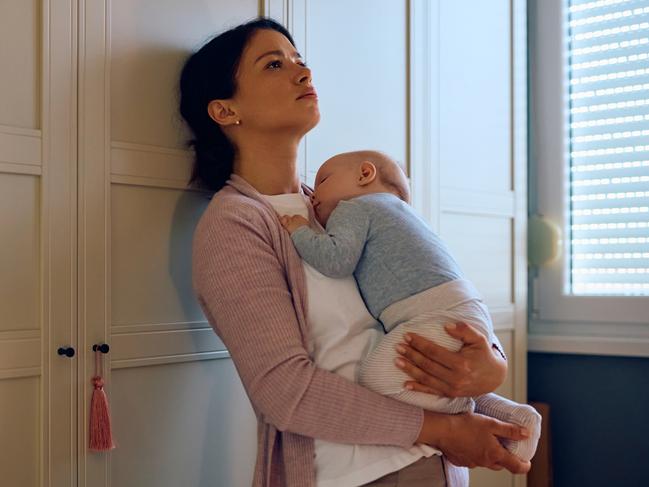
And worryingly, Health and Wellbeing Queensland has estimated up to five years could be lost from the life expectancy of a child born in 2024 if obesity rates are not turned around.
“Projections show that children born in the next decade from 2023 could have a shorter life expectancy than their parents, due to the impact of being overweight and obesity,” Dr Robyn Littlewood, CEO of Health and Wellbeing Queensland, said.
“In my 22 years working as a frontline clinician witnessing the lifelong consequences of the obesity epidemic … there is no more crucial time to invest and build prevention.”
Our survey found just one in three kids are eating vegetables every day, while less than half (45 per cent) of children are getting less than the recommended 60 minutes of physical activity each day. Nearly half (40 per cent) of children have more than seven hours of screen time a week, while only 18 per cent are taken outdoors to play by their parents for more than seven hours a week.
FALSE IMPRESSIONS OF HOW TO BE HEALTHY
Even though we are unfit and overweight, three-quarters of us claim to be knowledgeable about what we need to be healthy.
But the survey contradicts this, with half of us believing we need to exercise more than the recommended 2.5 hours a week.
Fifty-two per cent thought sugar intake should be limited to two teaspoons per day, when it is 12.
Forty per cent correctly recalled we need five serves of vegetables and two serves of fruit per day.
And when asked what caused cancer, half of us (59 per cent) did not know eating red or cured meat was a factor. One in three thought mobile phones caused cancer.
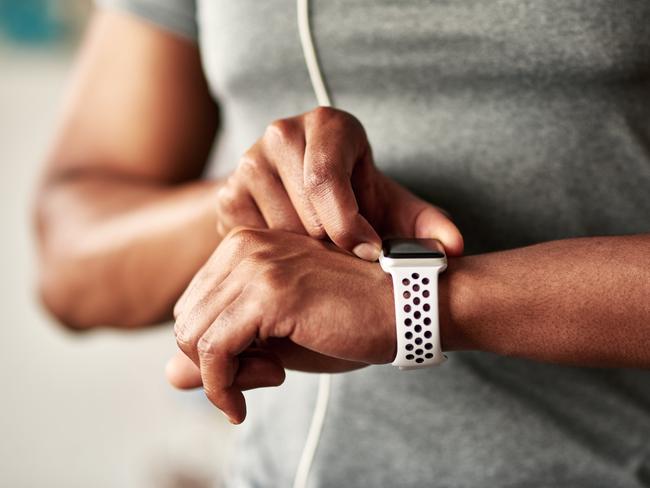
WE’RE HERE TO HELP
In a bid to stop the downward slide, today News Corp launches Health of the Nation, drawing on the latest science and advice on healthy eating and exercise. We have developed a health calculator, for you to determine where you sit based on your current lifestyle choices.
And to help you take that next step towards a stronger and healthier life, we have called upon leading personal trainer Sam Wood to offer you an eight-week health club that you can join for free.
Over the next week, we will dive into specific age groups – from conception through to our senior years – outlining the problem but, importantly, delivering diet and exercise solutions you can use.
And over coming months, our leading health brand Body+Soul will provide easy-to-follow health tips to save you time and create a sustainable routine.
TAKE OUR HEALTH CALCULATOR NOW
‘EASY TO OVERINDULGE’: HOW COVID LEFT AUSSIES WITH BAD EATING HABITS
Like millions of Aussie families, the Covid pandemic left the Corney family with a menu full of bad eating habits.
“Naturally it was easy to overindulge in food and alcohol as social activity was low and it was easy to say ‘stuff it, there’s nothing else happening why not cook an elaborate meal plus a bottle of wine’,” Damian Corney said.
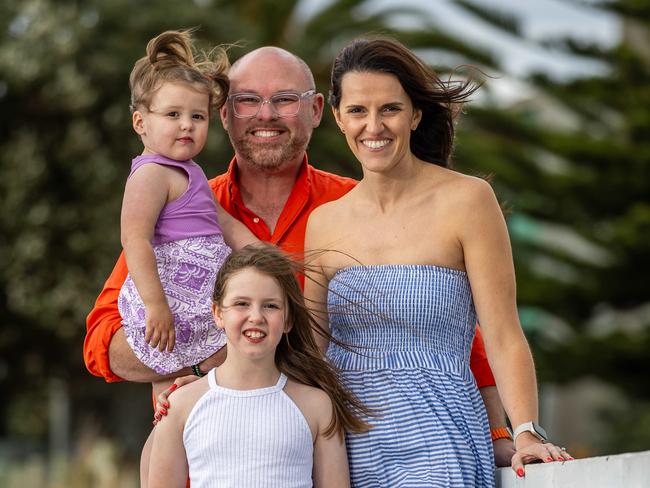
Their unhealthy diet got worse after the lockdowns, with Mr Corney travelling interstate for work and he and wife Adele juggling their two young children, Alessia, 7, and Sienna, 2.
They family has already started to rein things in.
“It’s too easy to overindulge when travelling especially for shorter 24/48hr trips. You’re either eating at airport lounges, grabbing something fast in between meetings, or having a larger than usual meal either with clients, or at a hotel,” he said.
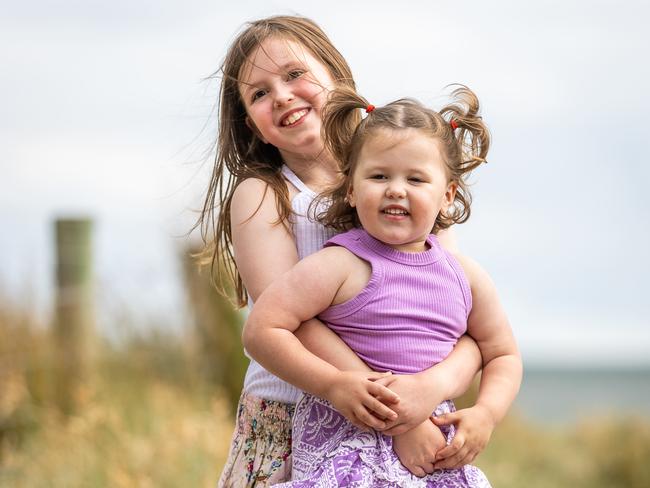
The family has already started to reign things in — and are today committing to taking the News Corp health calculator to reboot their health journey.
“As a family we definitely cut back on Uber Eats this year for health and budget reasons,” the Melbourne father said, noting Adele was once a nutritionist, which helped.
“We’ve had a few conversations just the past month or so about future lifestyle plans. We can’t just stick to our old ways and act like our lifestyle will just become easier to work with,”
“It’s been hard to ‘let go’ of those Covid-era bad habits, but I’m looking forward to putting them behind us as a family.”
CHECK OUT TOMORROW’S STORY: How to boost your odds of having a baby


